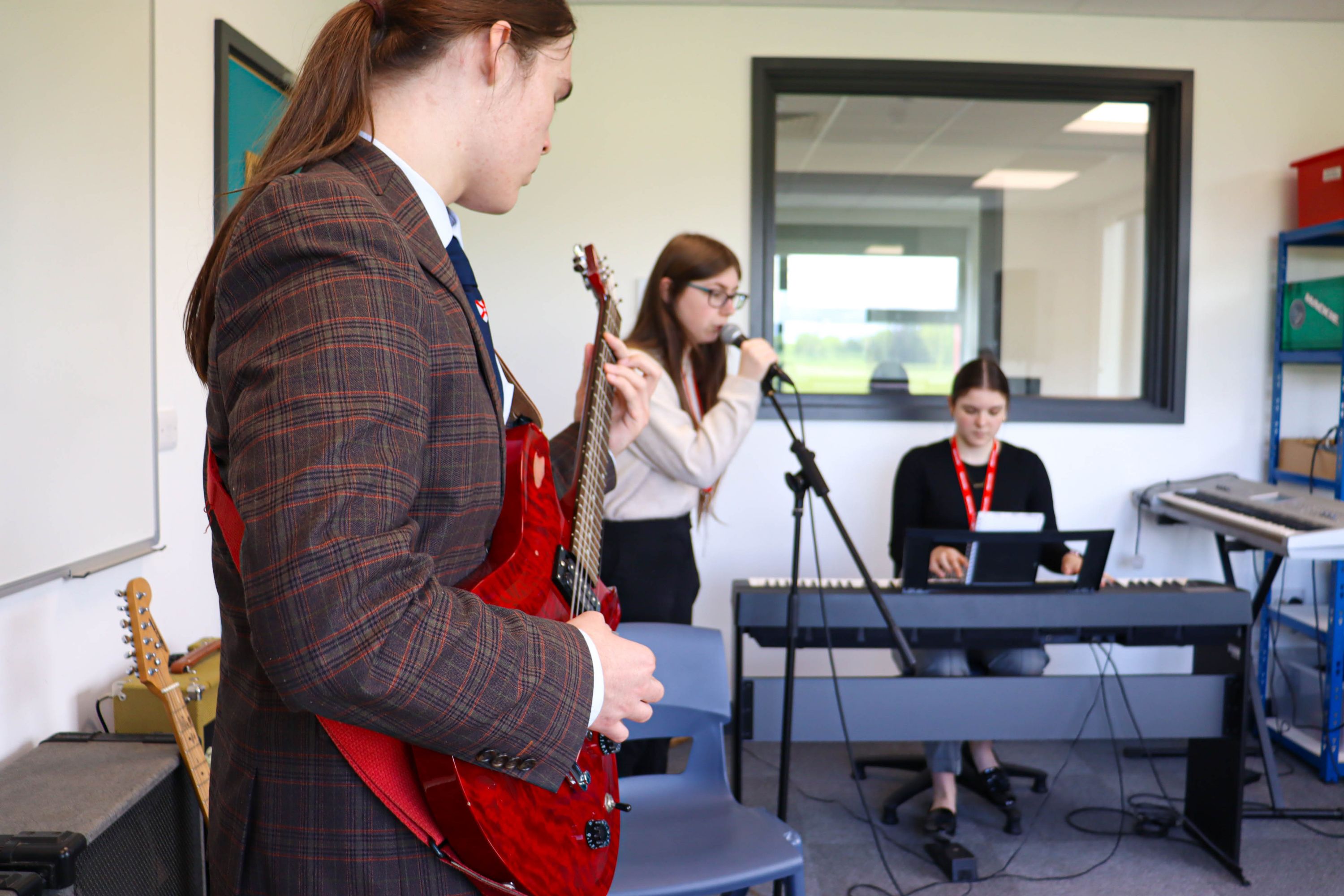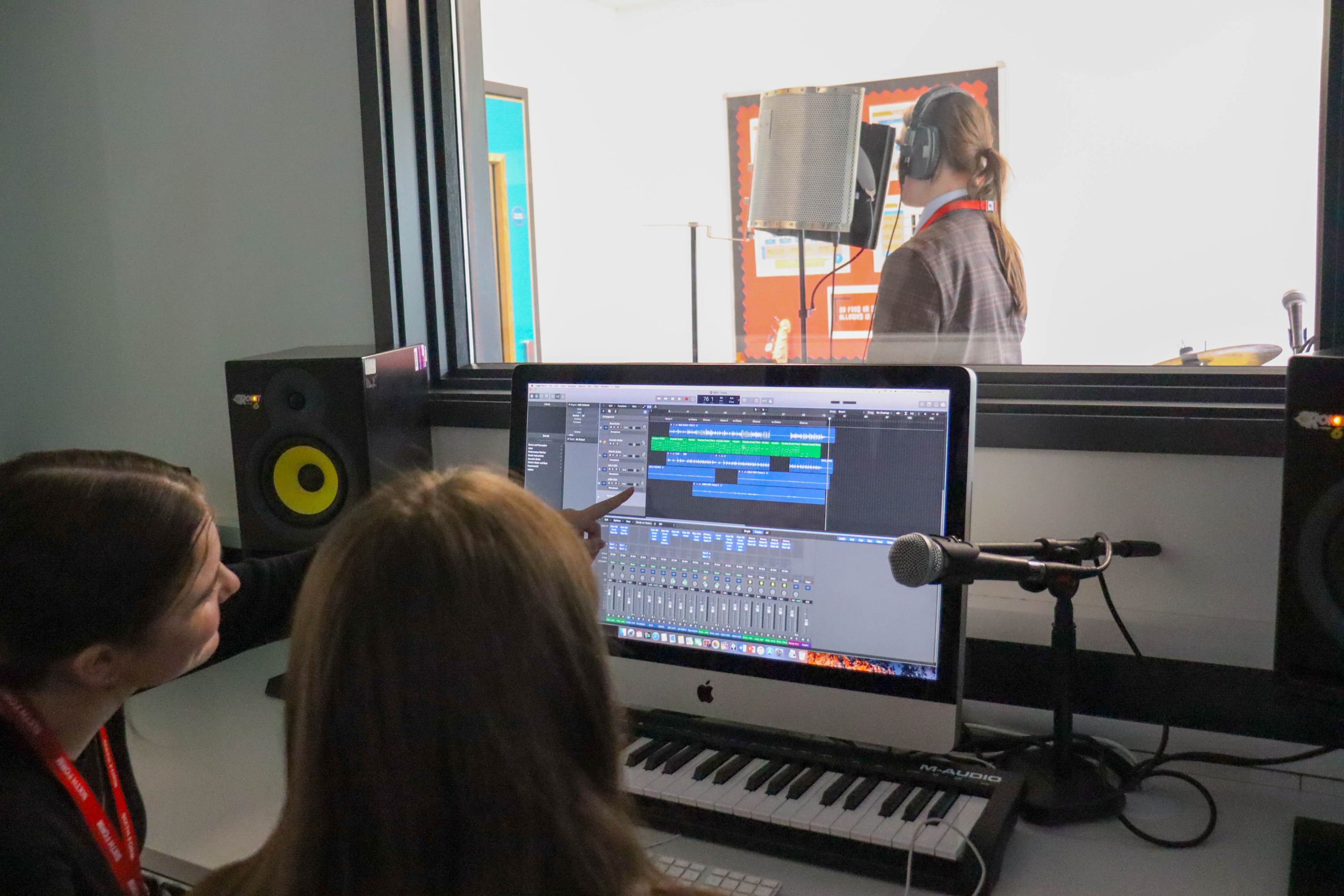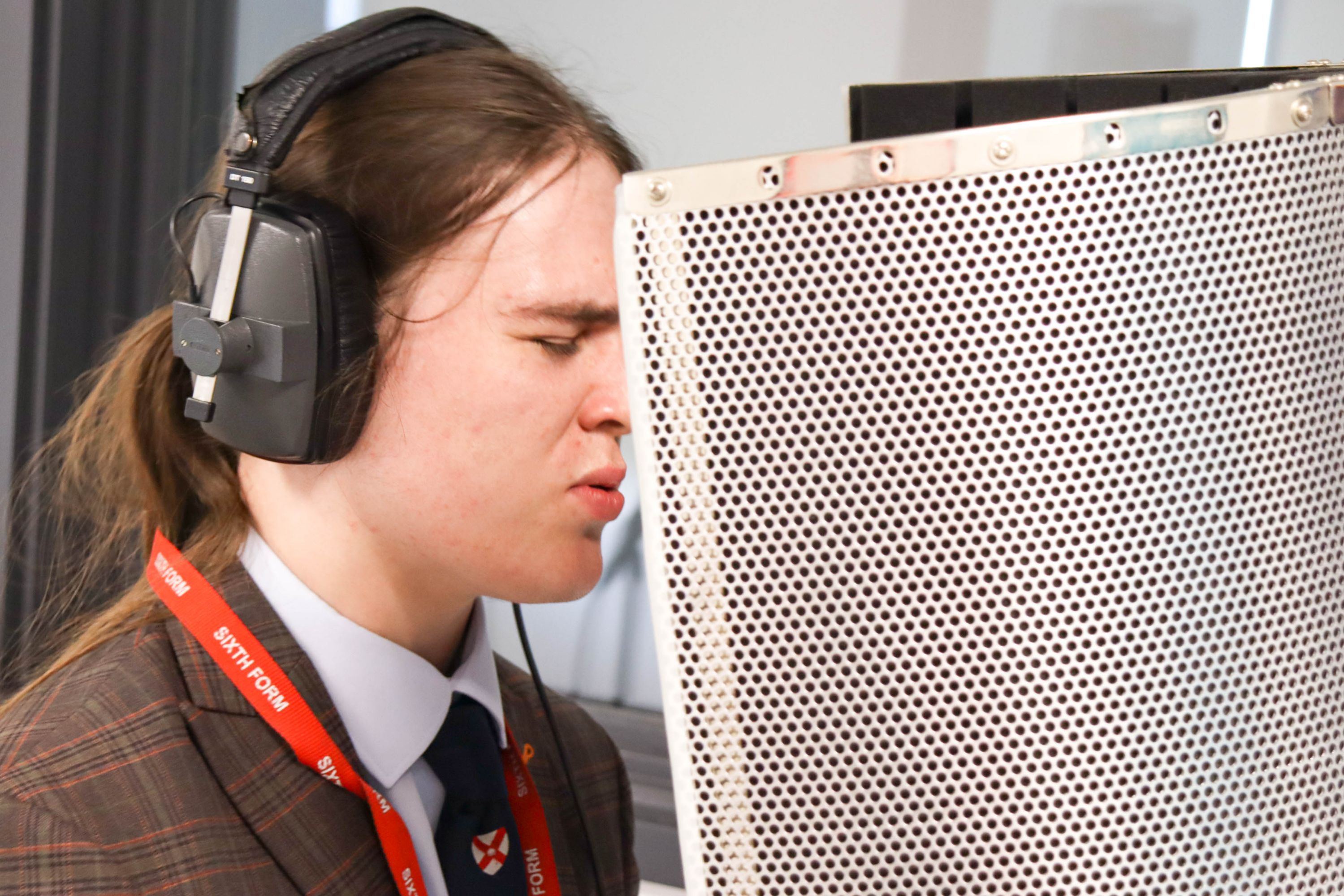Music
Curriculum Leader: Mr D Mackey - mackeyd@saintgeorgescofe.kent.sch.uk
This Music course is aimed primarily at students who are interested in developing practical musical skills, together with music theory and industry knowledge. It is a highly practical course and is centred on performing, relevant music theory, composition, and industry practice.
View our Learning Journey for Music here
Subject Requirements
- GCSE English - Grade 4 or above
- GCSE Maths - Grade 4 or above
- GCSE Music - Grade 5 or above (or Merit in equivalent vocational Music qualification, or instrument skills to Grade 5 ABRSM)
Intent
The BTEC National Level 3 Extended Certificate in Music Performance provides learners with skills, knowledge and understanding for entry to employment in the music industry or progression to further study at a higher level. It allows all students to flourish and obtain academic excellence. This qualification is equivalent to one A-level.

Implementation

The course covers the core aspects of practical music skills, compositional techniques, and relevant industry knowledge. It allows students to develop key skills that they can take forward with them into future employment. The units selected provide students with the opportunity to be critical thinkers and explore different ways to problem solve. They will deconstruct and create during composition, build confidence through performance, and develop leadership and teamwork skills through exploring the music industry. Students studying this programme will have a keen interest in developing their knowledge and skills and may be intending to pursue a career in the industry. This course is fully inclusive of all students with varying ability levels in Music.
Impact
At KS5 we currently offer the BTEC National Level 3 Extended Certificate in Music Performance. This qualification provides students with skills, knowledge, and understanding for entry to employment in the music industry or progression to further study at a higher level.
Skills obtained include Music Theory, understanding of scales, Key Selection, Rhythm, Texture, Harmonic Construction, Melodic Construction, Structure, Form, Instrumental Techniques, as well as, Group Work, Listening Skills, Performance Skills, Rehearsal Techniques, Event Planning, Budgets, and Presentation Skills.

Topics
Students are required to study 4 units over two years of Sixth-form. Assessment is a mixture of internal and external. The following units are currently offered:
Year 12
Composition - Internal Assessment
Learners explore composing music from the initial stages to the final product, developing skills for composition in a variety of styles.
Ensemble Music Performance (Exam) - External Assessment
You will learn about good practice and preparation for rehearsal and performance through a series of discussions, practical exercises and evaluation.
Year 13
Practical Music Theory and Harmony - Internal Assessment
You will learn about relevant music theory through a series of exercises. Many of the exercises will need to be implemented practically.
Professional Practice in the Music Industry (Exam) - External Assessment
You will learn about the music industry through individual research, case studies, and worksheets.
Assessments
The course is two years in length and 42% of assessment is via coursework which is internally assessed. It is structured around a number of assignments, some of which will be short-term, while others will require evidence of long-term progression (instrumental lessons, practice logs, etc.). Each unit has a learning content and outcomes that are clearly stated, and students will be kept informed of their progress. There will be exam-like elements to the course which will make up 52% of the assessment - however, they will be unlike traditional exams and more like supervised assessments such as preparation tasks, performances, and evaluations.
Unit 1: Practical Music Theory and Harmony (25%). Internally Assessed (90 GLH)
Unit 2: Professional Practice in the Music Industry (25%). Externally Assessed (90 GLH). 70 Marks.
Unit 3: Ensemble Music Performance (25%). Externally Assessed (120 GLH). 80 Marks.
Unit 4: Composing Music (25%). Internally Assessed (60 GLH)
Examining board link: BTEC Level 3 Extended Certificate Music Performance
Music Future Paths
The BTEC Level 3 Music Performance qualification provides a sound basis for students wishing to proceed to university / higher education courses in Popular/ Commercial Music. It can lead to careers in performing, teaching, and composition as well as related areas in publishing and media. It combines well with most other subjects. This course develops a well-rounded music practitioner who is looking at careers in the Music sector.
Resources
Music facilities include:
- Mac suite with Logic Pro X.
- Digital recording studio incorporating a ‘live’ room and separate control room.
- 4 purpose-built practise rooms equipped with pianos and/or PA systems.
- A wide range of band equipment, amplifiers, and acoustic drum kits
- We have a wide range of working professionals who provide peripatetic instrument/voice lessons who come into school to teach 1-2-1 lessons.
